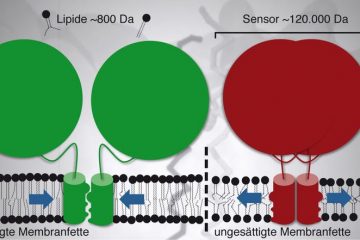
Billions of your cells divide every day. Cell division fuels growth and also replaces short-lived cells in some organs, like your skin, blood, and gut.
BaBeDa is a passive energy self-sufficient data logger for detection and documentation of shock events. A piezoelectric element is used as an acceleration sensor, since it – depending on the magnitude of the acceleration – produces electrical signals during a shock. These electrical signals are used both as a measurement signal and as power source for the circuit, which stores the data concerning the shock event. BaBeDa can be used in particular for shock detection in shipping. In the packing stations and logistics centers each BaBeDa chip can be read out to determine whether a packet was transported properly or not.
For this purpose BaBeDa can already be integrated into a packing during its production. Multiple usage is possible. Since BaBeDa is energy self-sufficient, there are no restrictions on the use of time. Because of the simple technique BaBeDa is compact, suitable for mass production and therefore also very cost effective.
A German patent application has been filed at the DPMA. On behalf of the University of Applied Sciences Bielefeld, we offer the opportunity of licensing and further development of the technology to interested companies.

The first conference of this kind was initiated by GEO BON, an international organisation which concerns itself with monitoring and collating global…

A new algorithm clusters the millions of peptide mass spectra in the PRIDE Archive public database, making it easier to detect millions of consistently…

Not only humans but also each of their body cells must watch their fat balance. Fats perform highly specialised functions, especially in the cell membrane. A…
The use of silicon as anode material promises high theoretical energy density in lithium-ion batteries. However, the volume of a silicon-based anode may increase substantially during lithiation. In order to solve this problem, scientists at the Institute of Photovoltaics (ipv), University of Stuttgart, now succeeded in developing a method for producing micro-stabilized and porous silicon anodes by means of laser irradiation. The battery electrodes related to this invention offer a high potential for lithiation and at the same time improved mechanical stability. Due to a large active surface they provide high energy density. They can be used for the production of mechanically flexible batteries.